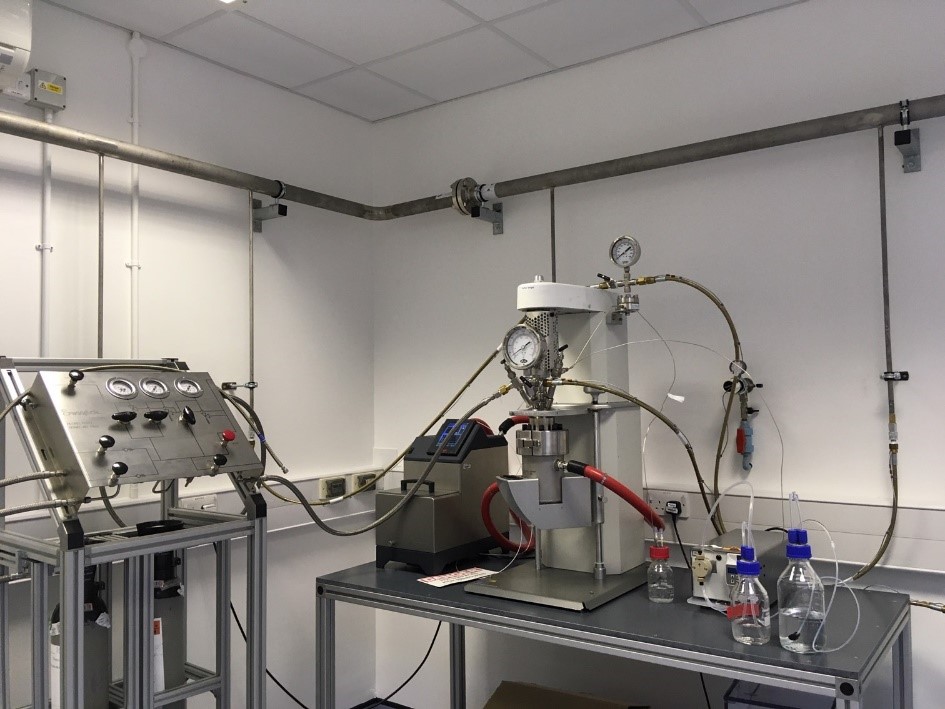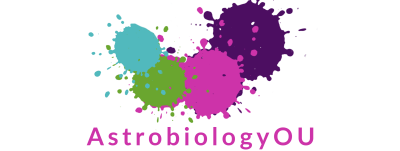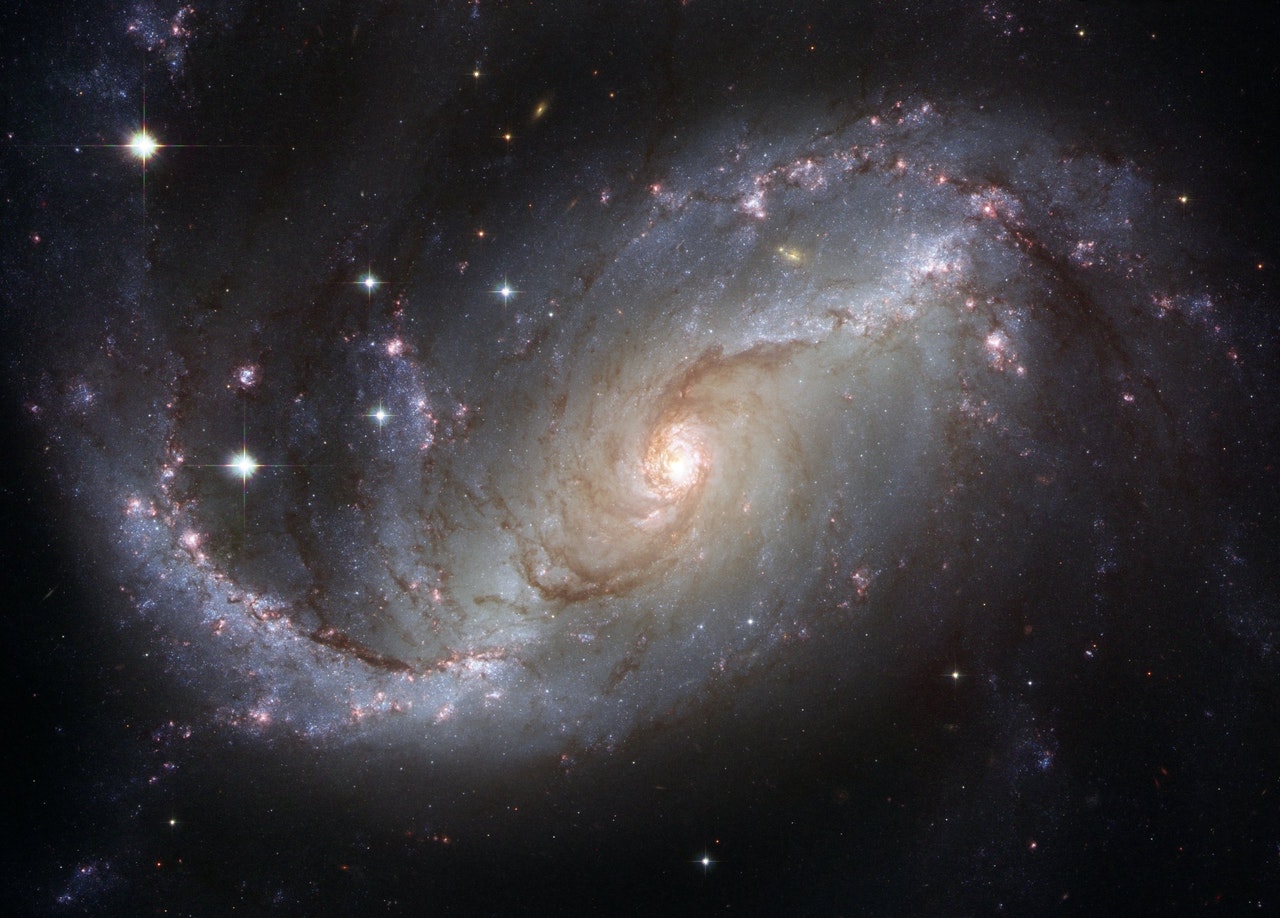Yiannis, can you tell me about your journey to astrobiology?
I was fascinated by science from a young age. As part of the post-Apollo generation, I closely followed developments in space exploration, such as the Voyager mission to the planets, and the advent of the Space Shuttle. In tune with the times, I studied for a physics degree in Greece and then a masters and a PhD in astrophysics at University College, London. For about 12 years I worked as a research scientist in the UK and Europe, using large ground-based and space-borne facilities including the Very Large Telescope in Chile and the Hubble Space Telescope. I studied nebulae associated with evolved stars and star-forming regions, such as the Orion nebula, with its proto-planetary discs where new planets are being born.
I then moved out of academia and used my technical and project management skills to work as a consultant, first in financial technology, developing business software for investment companies, and then helping academics and innovators to link up with industries looking for solutions to innovation problems. I came full circle when I joined the OU, first as a research and enterprise manager in the Faculty of Science, Technology, Engineering and Mathematics and then as Business Development Manager with AstrobiologyOU.
Many Open University students will hope to use the skills they develop as academic researchers in the business world. What kind of skills did you learn in academia that have transferred to business?
From research in the physical sciences, I learned how to structure my thinking, how to ask good questions and to look for the big picture among details and leads, how to be a critical thinker and how to write well. I also learned how to collaborate with people from different backgrounds and with different expertise, and how to manage projects, both in terms of time, for example if I needed to use a particular experimental facility that was only available within very strict time limits, or to ensure I could bring my work to a successful conclusion within budget.
There are also more specific skills. As a researcher, I learned how to handle large amounts of data and how to convert data from one form to another. For example, telescopes collect data on spectra and the brightness of celestial bodies; these data are converted to numbers that are represented by images on a screen and stored in large data files. I had to extract numerical information from those images, convert that into knowledge about the physical properties of the object and then write a rigorous paper presenting the results.
These skills could transfer very well into the finance or banking worlds, working with scientific instruments, science writing, teaching and policy work. There are many possibilities for scientists.
Why do you think it matters that a research group such as AstrobiologyOU has a business development function?
Astrobiology is a multidisciplinary endeavour. Take the rovers that are currently on Mars; they have multiple instruments that each focus on a particular feature of the planet and each aspect of their missions call for different specialist knowledge. Likewise, AstrobiologyOU’s expertise spans planetary science, microbiology, geophysics, chemistry, governance, development and education. The points where these different disciplines meet is where the ‘light bulb’ moment happens; creativity and innovation emerge and you can see applications for the research that you hadn’t thought of or imagined.
We also have a suite of state-of-the art laboratory facilities, mainly used by our students and researchers: environmental chambers, microbiology and molecular biology laboratories and vacuum chambers where we can test instruments. The role of business development is to think about how we can draw on these formidable creative capabilities to help solve the technological problems that companies and entrepreneurs are grappling with on the road to product development and growth.

The AstrobiologyOU Flow-Through Sub-Surface Reactor, used to study abiotic and biotic processes in the sub-surface environments of Mars and the icy moons. The continuous fluid flow creates conditions that mimic the natural environment.
The OU’s mission to be ‘open to people, places, methods and ideas’ imbues everything we do. Interacting with businesses helps our researchers develop new protocols and methodologies that can spur innovation and have an impact on the economy. At the same time, this benefits the OU’s students, who look to the OU to be a leader in the provision of top-quality educational experiences. Taking a broader view, working with business can open opportunities for our students and researchers that add substantially to the benefits of a university degree or a postdoctoral position. Right now, we’re in the early stages of our business development journey but this is the virtuous circle we aspire to complete.
Can you give me some examples of links between AstrobiologyOU’s research and business and industry?
In one current project, we’re drawing on our microbiology expertise to work with a local small business that makes products to remove contaminants from fresh produce. We’re working with the company to test and improve its products. Also, one of our part-time PhD students is an Airbus employee; his project is on new biological assay methods that could lead to improved planetary protection protocols in future space missions. To name a few other areas of interest, we’re exploring opportunities to work with companies in waste management, mining, biofuels and aerospace. We’re also part of discussions around the governance and regulation of the space sector. All these activities help to promote the group and increase its visibility.
What’s the future for business development in AstrobiologyOU? Where would you like to be in five or ten years’ time?
At the moment, we’re experimenting; trying to find the best way to do things, to develop a business model and explore avenues for making our research sustainable. In a few years’ time, I hope we’ll have settled on a functional model; we’ll be more aware of our capabilities and how they work as a coherent whole. The work we’re doing now will, hopefully, produce the seeds for future growth and funding opportunities that will not only benefit AstrobiologyOU but also the wider university and its hundreds of thousands of students.
 This article is part of the Astrobiology Collection on OpenLearn. This collection of free articles, interactives, videos and courses provides insights into research that investigates the possibilities of life beyond the Earth and the ethical and governance implications of this.
This article is part of the Astrobiology Collection on OpenLearn. This collection of free articles, interactives, videos and courses provides insights into research that investigates the possibilities of life beyond the Earth and the ethical and governance implications of this.




Rate and Review
Rate this article
Review this article
Log into OpenLearn to leave reviews and join in the conversation.
Article reviews